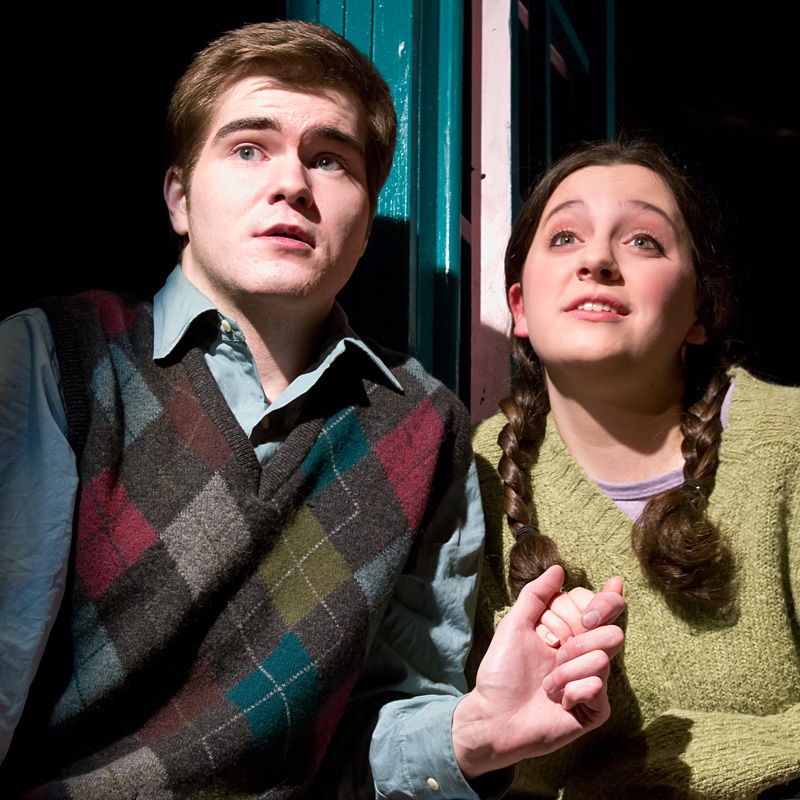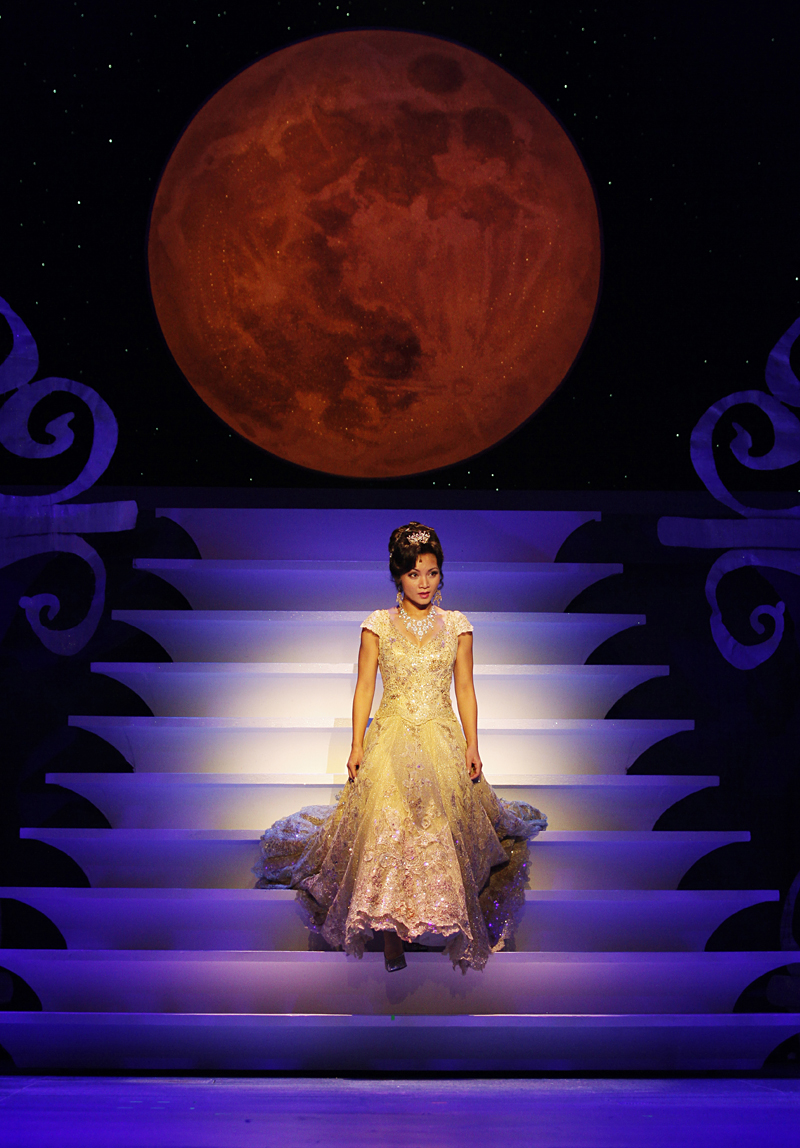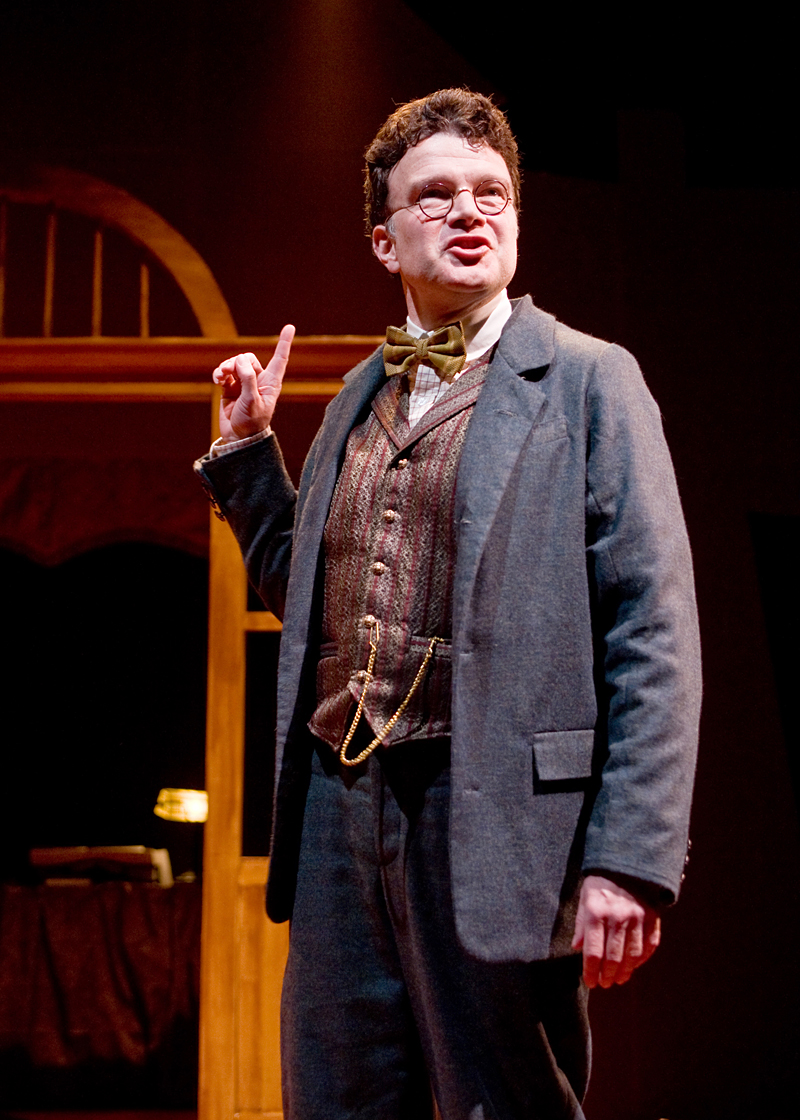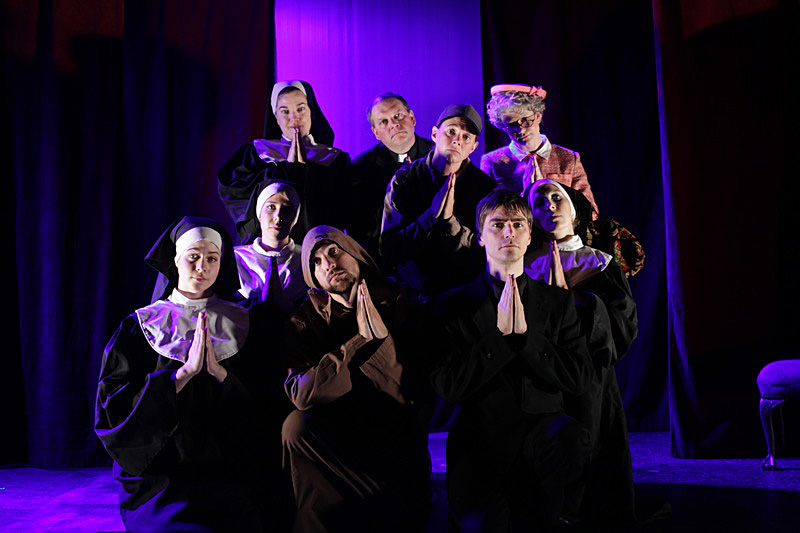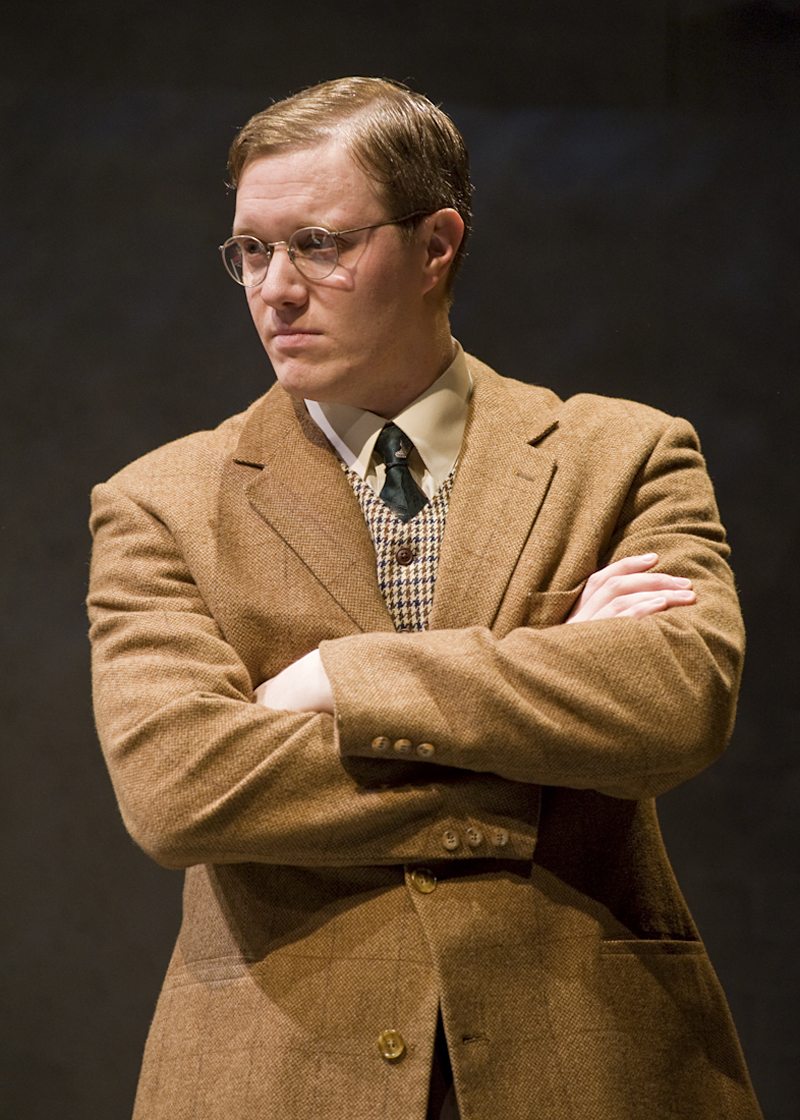The Rise and Fall of Little Voice is produced infrequently, likely because it demands a young actress capable of imitating an array of 20th-century songstresses, from Marilyn Monroe to Julie Andrews to Edith Piaf. Jim Cartwright wrote the play in 1992 for the talented Jane Horrocks (Bubbles on Absolutely Fabulous), leading to the movie Little Voice. More recently it was revived in the West End as a vehicle for Diana Vickers, a runner-up on Britain’s The X Factor. Here in West Seattle, director Christopher Zinovitch has found an exceptional talent in Myrna Conn, a local high-school student. Conn’s energetic mid-show medley is the production’s highlight; she clearly has the potential for a musical-theater career.
There is, however, another explanation for the play’s scarcity: the script. Cartwright’s story ties together a group of over-the-top characters in a sort-of-funny/sort-of-tragic plot that doesn’t always make sense. Grieving the death of her father, LV (as she’s always called) reclusively buries her sorrows in his old records, much to the irritation of her self-obsessed alcoholic mother, Mari (an excellent Peggy Gannon). The widowed Mari is on the prowl for a new man. Thus enters Ray (Daniel Reaume), a music agent looking for a one-night stand, who inadvertently discovers the mimicry talents of the otherwise mute LV.
Ray has to pretend he’s interested in Mari, and Mari has to pretend she’s interested in her daughter. There’s also a sweet, underdeveloped romance between LV and a telephone repairman (Travis Tingvall), and there’s also a character whose entire purpose is to be the butt of fat jokes (Patricia Haines-Ainsworth). It’s the setup for a farce, or maybe a musical comedy. But Little Voice takes itself too seriously for either. It strives for realism, which leaves us with a string of unanswered questions: When and how did the father die? Why does the repairman lust after a girl who doesn’t talk? And how does LV learn to impersonate celebrities’ physicality in a time before YouTube?
Zinovitch opts to emphasize the music, even adding a new Broadway-style number written by Suzy Conn (the mother of Myrna). If Cartwright had written High School Musical IV, the song would have fit in perfectly. But he didn’t, and this heavy-handed theme song further muddles the tone of the play.
